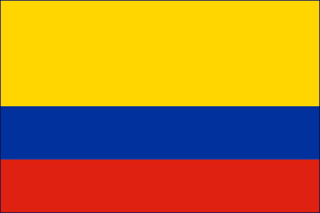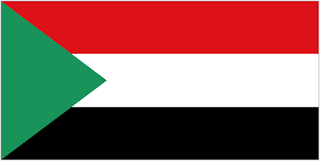A document published by the 32nd Front of the Revolutionary Armed Forces of Colombia – Army of the People (FARC-EP) in July this year illustrates the degree of repression the guerrilla group exercises over populations under its control, including strict restrictions on religious freedom.
The ‘manual for coexistence’, published by Colombian newspaper El Colombiano, includes strict restrictions on religious freedom in the region of Putumayo, where the 32nd Front maintains control.
It states that ‘Evangelical chapels may only be built in municipal capitals,’ and ‘Pastors and priests will only hold their masses in the churches in the municipal capitals.’ According to El Colombiano, priests and pastors in the heavily rural Putumayo region who have attempted to conduct ministry outside of the municipal capitals have come under threat or been forced to flee.
The manual’s restrictions on religious practice are in line with other reports received by Christian Solidarity Worldwide (CSW). The FARC-EP, a left wing guerrilla group which took up arms in the 1960s and is currently in the midst of an ongoing peace dialogue with the government, has targeted religious groups and leaders since its inception and is believed to be responsible for the targeted assassinations of hundreds of church leaders over the past fifty years. These include the murders of Reverend Manuel Camacho in the Guaviare region in 2009 and Pastors Humberto Mendez and Joel Cruz Garciain Huila in 2007; all three pastors reportedly defied FARC-EP restrictions on preaching and evangelism. Around 150 churches are believed to be shut down and religious activity forbidden in south-eastern Colombia in zones under FARC-EP control.
A recent report published by CSW’s partners, the Colombian Council of Evangelical Churches Commission for Restoration, Life and Peace, compiled and analysed ten years of work documenting human rights violations committed against Protestant Christians. The report found that over the past decade, the FARC-EP was responsible for 184 documented cases of religious intolerance.
CSW’s Chief Executive Mervyn Thomas said, “CSW is not surprised at the content of this manual as it is very much in line with what Colombians living in FARC-EP-controlled zones have been telling us for more than a decade. We continue to be concerned that the FARC-EP actively restricts the fundamental rights, including religious freedom, of the very people it claims to defend. The fact that this document was published and circulated only three months ago, but almost a year after the Colombian government and the FARC-EP entered into a formal peace dialogue raises questions once again about how any peace agreement will affect the civilian population. Respect for the fundamental human rights, including freedom of religion and conscience, enshrined in Colombia’s constitution and international covenants, alongside justice for victims, must be the foundation of any peace agreement. We call on the FARC-EP to eliminate all restrictions on freedom of religion or belief in areas under its influence with immediate effect.”
The ‘manual for coexistence’, published by Colombian newspaper El Colombiano, includes strict restrictions on religious freedom in the region of Putumayo, where the 32nd Front maintains control.
It states that ‘Evangelical chapels may only be built in municipal capitals,’ and ‘Pastors and priests will only hold their masses in the churches in the municipal capitals.’ According to El Colombiano, priests and pastors in the heavily rural Putumayo region who have attempted to conduct ministry outside of the municipal capitals have come under threat or been forced to flee.
The manual’s restrictions on religious practice are in line with other reports received by Christian Solidarity Worldwide (CSW). The FARC-EP, a left wing guerrilla group which took up arms in the 1960s and is currently in the midst of an ongoing peace dialogue with the government, has targeted religious groups and leaders since its inception and is believed to be responsible for the targeted assassinations of hundreds of church leaders over the past fifty years. These include the murders of Reverend Manuel Camacho in the Guaviare region in 2009 and Pastors Humberto Mendez and Joel Cruz Garciain Huila in 2007; all three pastors reportedly defied FARC-EP restrictions on preaching and evangelism. Around 150 churches are believed to be shut down and religious activity forbidden in south-eastern Colombia in zones under FARC-EP control.
A recent report published by CSW’s partners, the Colombian Council of Evangelical Churches Commission for Restoration, Life and Peace, compiled and analysed ten years of work documenting human rights violations committed against Protestant Christians. The report found that over the past decade, the FARC-EP was responsible for 184 documented cases of religious intolerance.
CSW’s Chief Executive Mervyn Thomas said, “CSW is not surprised at the content of this manual as it is very much in line with what Colombians living in FARC-EP-controlled zones have been telling us for more than a decade. We continue to be concerned that the FARC-EP actively restricts the fundamental rights, including religious freedom, of the very people it claims to defend. The fact that this document was published and circulated only three months ago, but almost a year after the Colombian government and the FARC-EP entered into a formal peace dialogue raises questions once again about how any peace agreement will affect the civilian population. Respect for the fundamental human rights, including freedom of religion and conscience, enshrined in Colombia’s constitution and international covenants, alongside justice for victims, must be the foundation of any peace agreement. We call on the FARC-EP to eliminate all restrictions on freedom of religion or belief in areas under its influence with immediate effect.”






.gif)